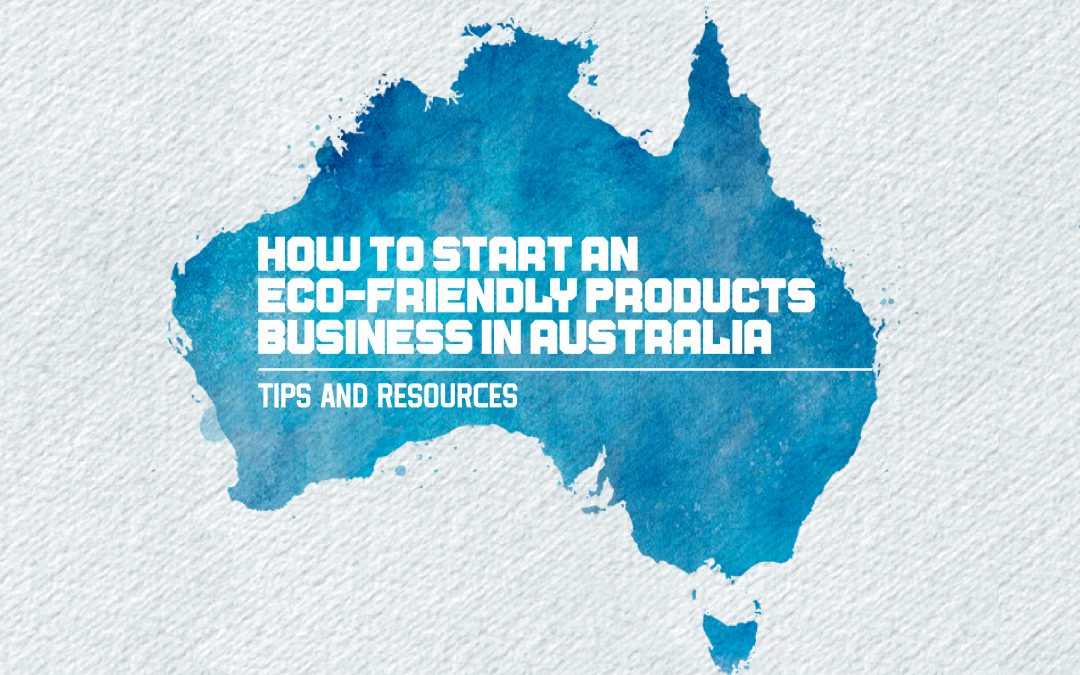Starting an eco-friendly products business in Australia is not just a way to tap into a growing market but also a chance to make a positive impact on the environment. As more consumers become aware of the environmental consequences of their purchasing decisions, the demand for sustainable and eco-friendly products is on the rise. Here’s how you can start your own eco-friendly products business in Australia, along with tips, resources, and insights into current trends.
1. Understanding the Market and Consumer Demand
Before diving into the eco-friendly business, it’s crucial to understand the market landscape in Australia. The demand for eco-friendly products is driven by increasing consumer awareness and a desire for sustainable living. According to recent studies, Australian consumers are willing to pay more for products that are environmentally friendly, with a particular focus on reducing plastic waste and supporting local, sustainable brands.
Tip: Conduct market research to identify gaps in the market and understand what products consumers are looking for. Consider surveys, focus groups, and analyzing competitors to gain insights into consumer preferences.
2. Choosing the Right Product Categories
Eco-friendly products cover a wide range of categories, including fashion, beauty, home goods, and personal care. Some of the top categories gaining traction in Australia include:
- Fashion: Sustainable clothing made from organic or recycled materials.
- Beauty: Natural, cruelty-free, and plastic-free skincare and cosmetic products.
- Home Goods: Reusable kitchen items, biodegradable cleaning products, and eco-friendly home decor.
Tip: Start with a niche that aligns with your passion and expertise. This allows you to build a strong brand identity and connect with a specific audience.
3. The Rise of Eco-Friendly Packaging in Australia
Packaging is a significant factor in the sustainability of products. In recent years, there has been a rise in eco-friendly packaging innovations in Australia, with companies moving away from single-use plastics and towards biodegradable, compostable, and reusable materials. Consumers are increasingly prioritizing products with minimal or sustainable packaging, making it an essential aspect of your eco-friendly business.
Innovation Spotlight: Brands like Who Gives A Crap and Biopak are leading the way in sustainable packaging in Australia. Consider partnering with packaging suppliers that offer eco-friendly options to align with your brand values.
4. Sourcing Sustainable Materials and Suppliers
Finding the right suppliers for sustainable materials is key to the success of your eco-friendly business. In Australia, there is a growing network of suppliers offering organic, recycled, and ethically sourced materials.
Tip: Prioritize suppliers that adhere to sustainable practices and certifications, such as Fair Trade, GOTS (Global Organic Textile Standard), and FSC (Forest Stewardship Council).
5. Creating a Strong Marketing Strategy
Marketing eco-friendly products in Australia requires a focus on authenticity, transparency, and education. Consumers are looking for brands that not only offer sustainable products but also actively contribute to environmental causes.
Strategies for Success:
- Educate Consumers: Use content marketing to educate your audience about the benefits of your eco-friendly products and the environmental impact of their choices.
- Leverage Social Media: Platforms like Instagram and Facebook are ideal for showcasing the eco-friendly aspects of your products through visuals and storytelling.
- Collaborate with Influencers: Partner with eco-conscious influencers to reach a broader audience and build credibility for your brand.
6. Eco-Friendly Alternatives to Everyday Products: A Comparison
Offering eco-friendly alternatives to everyday products can set your business apart from the competition. For example, you can provide reusable straws instead of single-use plastics, biodegradable cleaning supplies, and refillable personal care items.
Comparison Spotlight:
- Plastic Bags vs. Reusable Bags: Highlight the environmental benefits of switching to reusable shopping bags.
- Traditional Cleaning Products vs. Biodegradable Cleaners: Compare the impact on water systems and human health.
7. Success Stories: Australian Entrepreneurs Leading the Way
Inspiration can be drawn from Australian entrepreneurs who have successfully launched eco-friendly businesses. Brands like Koala (sustainable furniture) and Frank Green (reusable coffee cups) have made significant strides in promoting sustainability and have become household names.
Takeaway: Study these success stories to understand what strategies and values have resonated with consumers and how you can apply similar principles to your business.
8. Resources and Support for Eco-Friendly Businesses
Starting an eco-friendly business in Australia comes with a wealth of resources and support systems. Consider leveraging the following:
- Government Grants and Programs: Look into grants such as the Sustainability Victoria Grants that support businesses in reducing their environmental impact.
- Industry Associations: Join associations like the Australian Circular Economy Hub to stay informed about the latest trends and network with like-minded entrepreneurs.
- Certification Bodies: Obtain certifications that validate your commitment to sustainability, such as Australian Certified Organic (ACO) or B Corporation Certification.
9. Consumer Demand for Eco-Friendly Products in Australia
Understanding consumer demand is critical to the success of your business. Australians are increasingly seeking products that are eco-friendly, locally sourced, and transparent about their environmental impact. Consumers are also drawn to businesses that engage in sustainable practices beyond their products, such as using renewable energy or supporting environmental charities.
Key Insight: Offering a clear value proposition that aligns with consumer values will help you attract and retain eco-conscious customers.
Final Thoughts
Starting an eco-friendly products business in Australia is both a rewarding and timely endeavor. By understanding the market, choosing the right products, and adopting sustainable practices, you can build a successful brand that resonates with Australian consumers. Stay informed about industry trends, continuously innovate, and prioritize transparency to create a lasting impact in the eco-friendly market.
FAQs:
- What are the benefits of starting an eco-friendly products business in Australia?
- Starting an eco-friendly business in Australia allows you to tap into a growing market while contributing to environmental sustainability.
- How can I find sustainable suppliers for my eco-friendly products?
- Look for suppliers with certifications like Fair Trade, GOTS, and FSC, and prioritize those committed to ethical and sustainable practices.
- What are the most popular eco-friendly product categories in Australia?
- Popular categories include sustainable fashion, natural beauty products, and reusable home goods.
- How can I effectively market my eco-friendly products in Australia?
- Focus on educating consumers, leveraging social media, and collaborating with eco-conscious influencers to build brand credibility.
- Why is eco-friendly packaging important for my business?
- Eco-friendly packaging reduces environmental impact and meets consumer demand for sustainable, low-waste products.
- What support is available for eco-friendly businesses in Australia?
- You can access government grants, industry associations, and certification programs to help grow your eco-friendly business.












